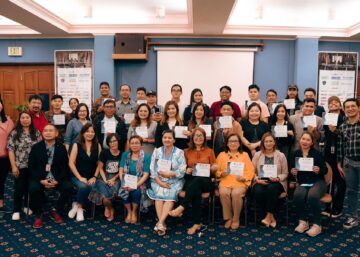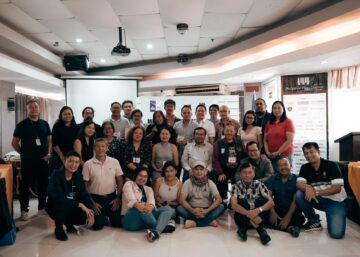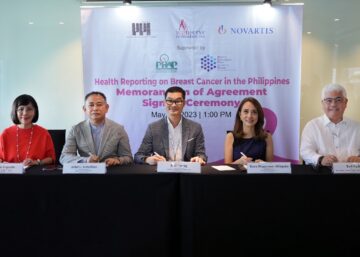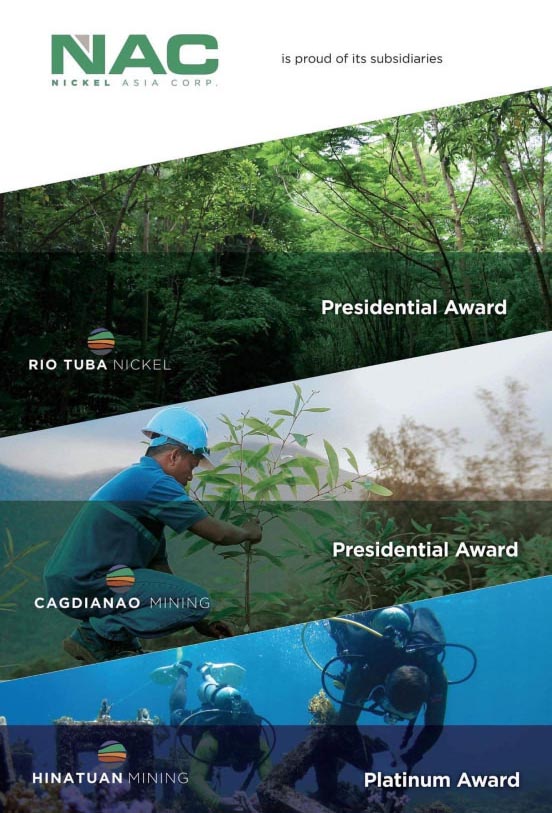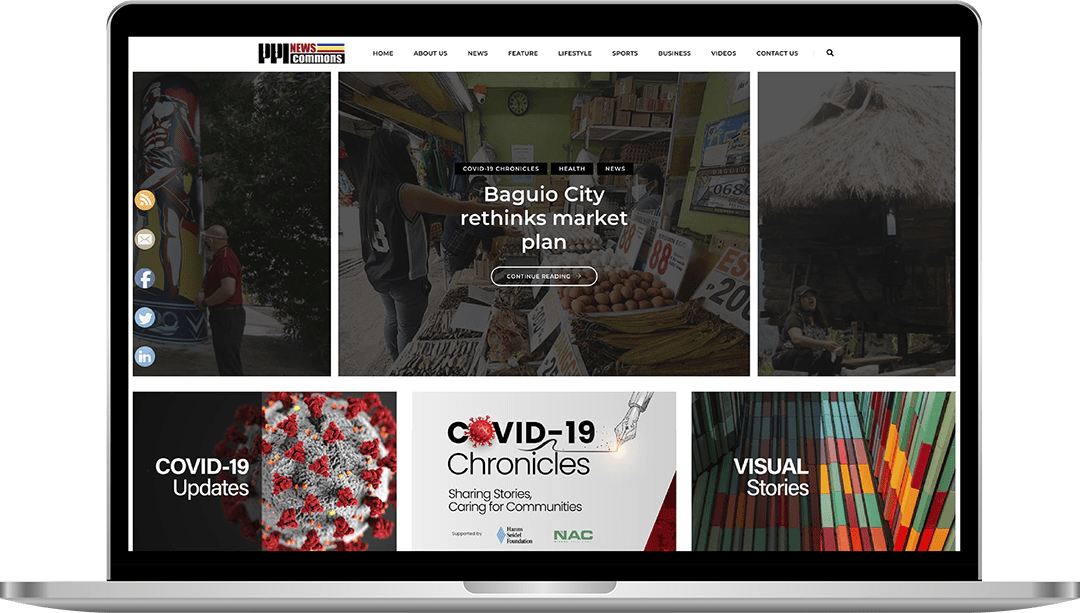Code of Professional and Ethical Conduct in Covering Elections Second Edition
2021
Developed by the Philippine Press Institute in partnership with the Asian Institute of Journalism and Communication (AIJC) with the support of UNESCO Jakarta and the Netherlands
“The success of a free press is reflected in the ability of journalism to honor a primary loyalty to the public. Journalistic principles of truth-telling and independence work together to honor that loyalty. To seek truth and report it as fully as possible, journalists must be independent.
“Journalists must remain free of associations and activities that may compromise their integrity or damage their own or their organization’s credibility….
“Credibility is what others think of us; ethics is what kind of people we actually are….
“Conflicts of interest occur when individuals face competing loyalties to a source or to their own self-interest, or to their organization’s economic needs as opposed to the information needs of the public.”
—Journalism Ethics: A Casebook of Professional Conduct for News Media (4th edition)
Revised by Fred Brown and other members of the Society of Professional Journalists (SPJ) Ethics Committee, 2011
The second edition of the Code of Professional and Ethical Conduct in Covering Elections is developed by the Philippine Press Institute in partnership with the Asian Institute of Journalism and Communication (AIJC) with the support of UNESCO Jakarta and the Netherlands.
Like its first edition, which was released in 1998, this will become a living document to the extent that individual news outlets, their publishers/owners, editors and staff writers will infuse it with life and vigor. It will continue to be updated to keep up with the evolving media landscape, ethical issues in journalism, and election coverage in the Philippines.
Ethics, and how individual journalists conduct themselves, are the individual’s call. But it takes a community of journalists and news outlets living it out together to make this Code the genuine, positive, powerful norm and standard it should be for the industry.
Professionalism is the key to upgrading and enforcing ethical standards in the media. In the newsroom, on the beat, in the boardrooms, and wherever it is journalists meet with their sources and make editorial decisions, the Code should serve all member-newspapers of the PPI and other news outlets as a reference of conduct and decisions of the individual journalist and news outlet. At the least, this Code seeks to clarify; at best, it offers a road map for where the journalist and the news outlet should go, abiding by professional and ethical standards, according to widely held traditions and practices of the free press in the Philippines and overseas.
This Code also assigns publishers/owners and editors the primary role in upholding professional and ethical standards. Fulfilling the spirit and intentions of the Code on the field requires the full, unqualified support—in terms of money, resources and corporate leadership—of the media owners. Applying its terms to the day-to-day flow of operations and decision-making in the newsroom, and to the performance evaluation of reporters, photographers, desk persons, artists, columnists and contributors—and even popularizing and explaining the Code to the newspaper’s editorial staff—are the tasks of the editors as gatekeepers.
Released in 2021, the second edition of the Code takes into account new and emerging challenges journalists may face in covering the elections amid health crises and conflict situations, in an era of increasing information disorder.
At the industry level, this is what the PPI will be guided by:
I. Covering elections
A. Pay our way
- The news outlet must cover the cost of coverage during the election campaign and count, including dining out sources for stories, airfare, hotel accommodation, internet/data expense, per diem, and other operations expenses of staff members assigned to political parties and candidates.
- This policy excludes transport services and common rooming accommodations arranged by the political parties for all members of the media.
- We must clear with supervising editors invitations from the candidates or political parties to join out-of-town or overseas coverage events, so the news outlet may appropriate the necessary budget, if these are newsworthy events.
- We must not accept cash or gifts in kind from politicians and political parties.
- We must not moonlight with political parties.
5.1. No staff member should be allowed to work on a part-time, full-time or contractual basis with any political party or candidate.
5.2. Staff members should be discouraged from inviting candidates to stand as godparents in baptisms, weddings and other church rites, or as padrinos (patrons) in the employment of relatives or friends. - We must exercise caution when reporting on surveys.
6.1. Statistical data derived from polling and surveying is especially susceptible to misunderstanding, misinterpretation and misuse. News outlets should clearly distinguish between scientific polls and non-scientific surveys such as readers’ call-ins or write-ins and person-in-the-street interviews that are reported in statistical terms. This information, including the headlines and graphics, must be done in a way that is likely to be understood by the average reader.
6.2. In using scientific polls, the sample size and the margin of error should be disclosed.
6.3. In using non-scientific surveys, the manner in which they were taken and their limitations should be clearly explained in print. Merely labeling a survey as “non- scientific” is not sufficient.
6.4. Surveys that do not meet minimal scientific standards of validity and reliability should not be identified as polls, nor should they be portrayed in language suitable to scientific polls.
6.5. Great caution should be used in employing non-scientific polls to address substantial questions of public policy or to describe the popularity or approval rating of public officials or public actions.
B. Manage conflicts of interest
Individual journalists (as well as publishers, editors, desk persons, reporters, photographers, artists, columnists) must weigh obligations against the impact of:
• Involvement in particular activities
• Affiliation with causes or organizations
• Acceptance of favors or preferential treatment
• Financial investments
• Outside employment
• Friendships
In the end, we must ask ourselves:
• Am I being independent?
• Could my action harm my integrity or my organization’s integrity?
• Is the mere appearance of conflict of interest enough to diminish my credibility?
• Am I willing to publicly disclose any potential conflicts?
- We should be careful with secondary jobs we take.
1.1. “Outside work,” secondary jobs or moonlighting presents per se a potential conflict of interest, especially with individuals, firms or entities:
• that are the subject of news, past or future;
• that are competitors of the primary source of income of the journalist (another broadsheet or magazine circulating in the same market);
• that require the journalist to render more than just editorial services (writing, editing, art design), additional services that would compromise
the integrity of his/her profession and news agency (pushing press releases, organizing press conferences, acting as press agent, etc.)
1.2. Individual journalists who do outside work or acquire secondary jobs must properly inform immediate superiors. (A secondary job is one which gives the journalist income less than what he/she gets from his/her newspaper.)
1.3. Professional work as stringers or freelance writers for newspapers, magazines, book publishers, news services, photo agencies and similar organizations headquartered outside one’s circulation area is usually acceptable. So is part- time teaching in local colleges and other professional duties. All arrangements of this kind are discussed in advance with management.
1.4. We must avoid paid or unpaid work for a politician or political organization, and should not hold public office or accept appointment to any political position for which there is remuneration other than expenses.
- We must not use our news outlet to make money on the side. We should draw the line between journalism and our own money ventures.
2.1. Financial investment by staff members or other outside business interests that could conflict with the news outlet’s ability to report the news or that would create the impression of such a conflict should be avoided.
2.2. A staff member may not enter into a business relationship with a news source. A staff member may not make investments which could come into conflict with the staff member’s duties. A staff member with investments or stockholdings in corporations should not make news decisions that involve those corporations.
2.3. Similarly, staff members’ employment by news sources or potential news sources should be avoided, and staffers should not lend their names to commercial enterprises with no promotional value to their news outlets. Business interests that could conflict with a staff member’s ability to report the news, or that would create the impression of such a conflict, must be avoided. - We have the right to advocate causes and join organizations, but we must not impose this on our readers. We must disclose our advocacies and organizational involvements.
3.1. Staff members should avoid any involvement in any activity which could compromise, or appear to compromise, the staff member’s role or the news outlet’s capacity, ability or disposition to gather, report, write or edit, faithfully, factually, impartially or fairly. Such activity must be cleared in advance with the editor(s) whenever any possibility of interference or conflict of interest exists.
3.2. We must exercise discretion in all relationships with causes and organizations. Staff members are encouraged to join and to perform voluntary services for local religious, cultural, social and civic organizations. News outlets have the same community responsibility as other businesses in donating editors’ and employees’ time to civic undertakings. Staff members should let supervisors know what groups they’re involved with.
3.3. We should avoid political involvement beyond voting. In no circumstances may a staff member seek political office or work, for pay or as a volunteer, in a political campaign or organization.
- We should not misuse and abuse our privileges as a journalist.
4.1. Journalists must take care not to use the news outlet’s property, e.g., its name, its stationery, or press card, for personal gain or advantage.
4.2. However, we recognize that our involvement as citizens may sometimes compromise or inhibit our professional responsibilities, and we judge each situation with that in mind. We are particularly conscious of the necessity to avoid personal involvement in either side of an issue about which we would be writing or editing stories for our news outlet.
4.3. Unpublished information gathered by the news outlet may not be used by staff members for investment decisions. Staff members should try to ensure the confidentiality of information gathered by the news outlet by making every effort to keep such information from reaching anyone who might attempt to use it for personal gain before it is published. Staff members should be careful in dealings with news sources—particularly those in the investment community— not to disclose before publication the nature of the story that has the potential to affect the price of any stock. And because the timing of an investment is often crucial, no one outside the newspaper should know in advance the publication date of a story. When there is doubt about the appropriateness of a business investment, or about any possible conflict of interest, the staff member should discuss the situation with the supervising editor.
4.4. No staff member should write about, report on, photograph or make a news judgment about any individual related to him or her by blood or marriage or with whom the staff member has a close personal relationship. Writing or editing a story about a friend’s business, for example, presents a conflict of interest and should be avoided. A staff member who finds himself or herself in a situation where a conflict of interest (or the perception of such) becomes likely should consult with the supervising editor about the circumstances.
4.5. We must not use our positions with the news outlet to get any benefit or advantage in commercial transactions or personal business for ourselves or our families or acquaintances. For example, we must not use company connections to:
• Get information or a photograph for purposes other than those of the
newspaper;
• Expedite personal business with, or seek special consideration from, public officials or agencies, such as the police;
• Seek for personal use information not available to the general public; or
• Get free, or at a reduced rate not available to the public, things like tickets, memberships, hotel rooms, or transportation.
4.6. We must not use the company name, reputation, phone number, or stationery to imply a threat of retaliation or pressure, to curry favor, or to seek personal gain.
- We must be critical and discerning in choosing and accepting funds to sustain our news outlet’s operations (e.g., advertising) and institutional development (e.g., grants for fellowship and training programs).
- We must protect the editorial integrity of the newsroom by not succumbing to the political and business interests of media owners.
II. Writing the story
A. General guidelines - All efforts must be exerted to make stories fair, accurate and balanced. Getting the other side is a must, especially for the most sensitive and critical stories, as long as they are verified. The other side must run on the first take of the story and not any day later.
- Single-source stories must be avoided as a rule. There is always the imperative to get more sources—the contending parties to an issue, the expert source, the affected party, the prominent and the obscure—for a story. We must strive at all times to ascertain the truth of our sources’ assertions.
- We must contribute to curbing the information disorder by adding another layer of verification in the face of photo manipulation, artificial intelligence or AI-generated content, trolls, bots and “deepfake” videos. This may include the use of digital tools such as reverse image search, which may help trace the original source of the image if it is stored in online image databases. (However, this is still subject to further research and verification.)
- We should consider creating an internal fact-checking mechanism in the newsroom to ensure institutionalization of the practice.
- We should pursue continuous capacity building on fact-checking and the use of relevant digital verification tools in order to keep up with rapidly evolving disinformation tactics.
- We should create partnerships with or join multi-stakeholder networks of organizations, news outlets, and academic institutions engaged in fact-checking. For example, we may exchange information and share good practices and recommendations.
- Evidence is required, particularly for stories alleging corruption or wrongdoing by public officials or agencies, or private individuals and corporations and groups.
- As a rule, anonymous sources are discouraged, especially if they are coming from the public sector or publicly accountable agencies. But when we need to shield the identity of our source—because revealing it would put his/her job or life in danger—we must first ascertain the truth of his/her assertions, determine if he/she is not a polluted source or an interested or beneficial party, and describe him/her in a manner that would establish his/her expertise or right to speak on the subject.
- We must avoid at all times language, photographs, visuals and graphics that are racist, sexist, insensitive and disrespectful of men, women, children, persons with disabilities (PWDs), religious groups, cultural communities, and gender and political preferences.
- The identities and photographs of persons who figure in the news as victims of sexual abuse (e.g., rape, incest, sexual harassment, prostitution, battering) must not be printed, and details about their personal circumstances and identities must be withheld. In the case of incest victims, the identities of the accused and immediate family members must also be protected.
- Suspects in criminal cases must be properly described as suspects. Photographs of a police lineup of suspects must be avoided, except in cases of large public interest, and when prima facie evidence has been established against suspects who are publicly accountable officials.
- Documents that had been leaked by sources, especially those from the government, must be properly described as leaked documents when used in a story. As much as possible, the source must be identified.
- When we commit errors of fact or impression, we must acknowledge this on print, and promptly issue a clarification.
- Misleading practices such as misrepresentation, trickery, impersonation and the use of hidden audio recorders in newsgathering can seriously undermine a newspaper’s credibility and trustworthiness and should be avoided. An editor confronted with a decision to employ such methods should meet the following conditions:
• Public importance. The expected news story should be of such public interest that its news value clearly outweighs the damage to trust and credibility that might result from the use of “deception.”
• Alternatives. The story cannot reasonably be recast to avoid the need to misrepresent.
• Last resort. All other means of getting the story must have been exhausted.
• Disclosure. The “deceptive” practices and the reasons why they were used should be disclosed on print at the time the story is published.
B. Specific guidelines on election reporting amid health crises and conflict situations - Amid myths, speculation, misinformation and disinformation about issues related to health crises and conflicts, we must provide clear, reliable, verified and contextualized information.
- Questions must be framed to be able to elicit detailed information from a news source, hold the news source to account, and provide context in the report.
- We must take extra precaution in reporting on health and crisis information. We should verify with multiple relevant sources and check the background of the experts.
- We must refer to official sources, such as the World Health Organization and the Department of Health, when searching for health-related information. Conducting a background check on each expert is a must.
- In dealing with experts and authorities who have been found to spread misleading or false information, including conspiracy theories, we must exert conscious effort to
challenge their statements and steer the narrative toward the truth. We should not merely repeat or amplify news sources’ statements; rather, we must present factual, verified information to counter any misinformation or disinformation shared by our subjects.
- We should check the use of health terminologies and seek experts’ advice in explaining medical jargon.
- We must avoid providing sensationalist and alarmist information that may create unfounded fears or hopes among citizens, such as unverified information about an ongoing conflict or the dangers of a particular type of medicine or a cure for a disease.
- We must clearly distinguish between journalistic content and advertisements. Advertorials must be transparently labeled.
- We should avoid stigmatization and social discrimination of infected individuals and communities and protect their personal data.
- We must consistently provide life-saving information to the public.
- Following health and safety protocols should be a priority. We must protect ourselves, our sources, and the public.
- Newsrooms must provide life and health insurance, especially to journalists and media workers reporting on health crises and conflicts.
- Newsrooms must pay for logistical requirements for news coverage including transportation, phone and internet allowance, and safety gear, especially for journalists and media workers covering health crises and conflicts.
- Newsrooms must provide psychosocial safety interventions such as debriefing sessions to all staff reporting on health crises and conflicts.
III. Using social media accounts
The first edition of the Code of Professional and Ethical Conduct in Covering Elections and the Philippine Journalist’s Code of Ethics were crafted before the emergence and evolution of social media.
Today, newsrooms need to develop specific professional and ethical guidelines in reporting amid the growing role and influence of social media in the country and around the world, and in the face of issues related to the information disorder. The role of social media in elections should also be considered.
Social media platforms increase the reach of news outlets and provide tools for public engagement, and these must be maximized by news outlets. At the same time, as citizens’ news and media consumption habits change, newsrooms need to anticipate and address possible issues, such as the implications of the evolving nature of virtual pressers and press conferences, where not only journalists but also the public have access to information before it is vetted and reported in the news.
The Code recognizes that each newsroom may have its own social media guidelines. This section focuses specifically on guidelines on the use of official and personal social media accounts by journalists, which newsrooms may consider. Other guidelines on the use of social media in reporting are weaved into the section on writing the story, such as the reminders about enhancing verification processes and fact-checking mechanisms in the face of information disorder.
A. Official social media accounts
News outlets have expanded their presence online to include not only official websites but also official social media accounts. Each newsroom may have its own rules on using the company’s social media platforms, but below are basic guidelines that may be helpful in any news outlet:
- We should follow the same journalistic guidelines in posting reports via social media. We must avoid falling into the trap of making an article “viral” and “trending” through clickbait, which refers to sensationalized or misleading headlines or texts. This newsroom culture should be discouraged as it will affect the news outlet’s credibility.
- While social media is used to connect with audiences, the tone used in posts should remain civil and professional.
- Apart from following community guidelines prescribed by each social media platform, we should encourage our newsroom to have our own internal policies to support or reinforce community guidelines.
- Ensure that our newsroom’s social media guidelines are appropriate to the local context, taking into consideration the political, social, and cultural landscape.
- Never use foul language, and avoid engaging in hostile exchanges.
- Analyze the identity of the social media user and the nature of the social media comments before deciding whether or not to respond based on our newsroom’s social media policies.
- Listen to constructive criticism, and respond with openness and respect.
- Report online threats and attacks, including red-tagging, to the social media platform, the authorities, and media organizations that monitor and respond to these threats. Follow your newsroom’s legal and security guidelines in monitoring and handling such threats and attacks.
B. Personal social media accounts
Newsrooms may also have their own guidelines on journalists’ personal social media use, but here are reminders that may be applicable across news outlets in the Philippines.
- Echoing the Philippine Journalist’s Code of Ethics, we must comport ourselves in public or while performing our journalistic duties in such manner as to maintain the dignity of our profession. When in doubt, decency should be our watchword. This applies to our behavior while using personal social media accounts.
- As journalists, we are perceived by the public as representatives of our respective news outlets. Thus, we should avoid posting our opinions on social media and sharing or reposting anything that may indicate our personal stance on issues, such as endorsement of candidates during elections.
- We must avoid reposting or sharing content from “early exit polls,” as the information may likely be inaccurate or unreliable.
- We should respect our colleagues’ privacy by not posting behind-the-scenes photos without their permission.
- We must protect ourselves and our colleagues by not posting any information that could jeopardize safety, such as our locations, except during live coverage.
- We should not post information exchanged in the newsroom during election coverage which may not be ready for broadcast or publication, such as debates and discussions between editors and reporters and initial discussions with sources.
IV. Listening to feedback
In a democracy, a free press is essential. This freedom comes with responsibility and accountability to the public, which means the press should listen to citizens’ feedback.
While journalists work hard to ensure accuracy, fairness, independence and transparency, they are not infallible. When journalists make mistakes, they should hold themselves accountable by immediately disclosing the error. The news outlet must issue errata. Moreover, readers should be reassured that steps are taken to avoid repeating the mistake.
In the Philippines, there are organizations that monitor the media and conduct a journalism review, which identifies recommended practices and points out errors, weaknesses and areas for improvement.
This type of constructive feedback should be reviewed by journalists and news outlets to help improve their work.
There are also press councils that function as public redress mechanisms. They accept complaints about media coverage from aggrieved news sources on media issues, such as errors in accuracy and other unfair practices of the press. These press councils were created with the aim of improving the quality of journalism and protecting the press from attacks such as lawsuits, physical attacks, and killing.
Currently, the press councils in the country include the Philippine Press Council (PPC) under the Philippine Press Institute, the Kapisanan ng mga Brodkaster ng Pilipinas (KBP) Standards Authority, and the Cebu Citizens-Press Council (CCPC).
The PPC, which oversees the newspaper industry, is composed of journalists and selected representatives from the legal profession, the business sector, and the academe. Its Council
Secretariat screens complaints to determine legitimacy, and elevates them to the Council for resolution. The Council makes decisions by consensus and takes any of the following actions:
- The Council requires a newspaper to publish the disregarded side of the story or an issue, and, if the newspaper refuses to do that, cause the publication of the Council’s findings on the case in other newspapers and in Press Forum, the Philippine Press Institute’s publication.
- The Council returns the case to the Secretariat for further inquiry if sufficient merit has not been established for the case to warrant a Council proceeding.
- The Council drops the case if it is found unmeritorious, notwithstanding the endorsement from the Secretariat. Any appeal for unsatisfactory redress goes through the same process as the first complaint.
The CCPC, on the other hand, is a 15-member council in Cebu City with seven members of the media and eight non-media members.
The KBP Standards Authority oversees the broadcast industry guided by the KBP Broadcast Code, which provides professional and ethical broadcasting guidelines. Violations of the Code by KBP member-stations are reported to them.
Press councils help hold the media accountable for mistakes and help strengthen the public’s trust in legitimate news media. They also provide an alternative to lengthy litigation.
Thus, it is important for journalists to listen to and address complaints submitted to press councils. Doing so demonstrates commitment to accountability, ethics, transparency, and public interest journalism.
Advisory:
No code of ethics can prejudge every situation. Common sense and good judgment are required in applying ethical principles to realities on the ground. Individual news outlets are encouraged to augment these guidelines with locally produced codes that apply more specifically to their own situations.
References
Accountable Journalism. (n.d.). Philippines press councils. https://accountablejournalism.org/press-councils/Philippines
Antiquerra, J. R. M., Abeyrathna, T., & Hlaing, Z. (2020). Reporting on elections: A toolkit for journalists in Myanmar. ANFREL. http://themimu.info/sites/themimu.info/files/documents/Guide_Reporting_on_Elections_-
_A_Toolkit_for_Journalists_in_Myanmar_ANFREL_2020_ENG.pdf
Brown, F., Black, J., & Society of Professional Journalists (U.S.). (2011). Journalism ethics: A casebook of professional conduct for news media. Marion Street Press.
Cebu Citizens-Press Council. (n.d.). About. https://www.cebucitizenspresscouncil.org/about/
Center for Media Freedom and Responsibility. (2016). Media on elections and violence 2016. https://cmfr-phil.org/media-on-elections-and-violence-2016/2/
Columbus Ledger-Enquirer. (n.d.). Code of ethics. Columbia University. http://www.columbia.edu/itc/journalism/j6075/edit/ethiccodes/COLUMBUS.html
Eil, P. (2018, October 31). How to criticize the press—responsibly. Columbia Journalism Review. https://www.cjr.org/analysis/how-to-criticize-the-press-responsibly.php
Henrichsen, J. R., Betz, M., Lisosky, J. M. (2015). Building digital safety for journalism: A survey of selected issues. UNESCO. https://unesdoc.unesco.org/ark:/48223/pf0000232358
Ireton, C. & Posetti, J. (2018). Journalism, ‘fake news’ & disinformation: Handbook for journalism education and training. UNESCO. https://en.unesco.org/sites/default/files/journalism_fake_news_disinformation_print_friendly
_0.pdf
Lim, C. T. (2014, May 8). PPI to support creation of local press councils. https://www.sunstar.com.ph/article/343472/Business/PPI-to-support-creation-of-local-press- councils
Memmott, M. (2018, November 6). Social media rules of the road on election day. NPR. https://www.npr.org/sections/memmos/2018/11/06/664644486/social-media-rules-of-the- road-on-election-day
Myanmar Press Council. (2020). Guidelines for media during elections [English version].
NPR. (n.d.). Special section: Social media. https://www.npr.org/about-npr/688418842/special- section-social-media
Perreault, M. F., & Perreault, G. P. (2021). Journalists on COVID-19 journalism: Communication ecology of pandemic reporting. American Behavioral Scientist, 1-16. https://doi.org/10.1177/0002764221992813
Philippine Plan of Action on the Safety of Journalists. (2019). Asian Institute of Journalism and Communication. https://aijc.com.ph/wp- content/uploads/2020/09/Final_phil_planofaction_safetyofjournalists.pdf
Philippine Press Institute. (1988). Journalist’s code of ethics. https://philpressinstitute.net/journalist-code-of-ethics/
Philippine Press Institute. (1998). Code of professional and ethical conduct in covering elections. https://philpressinstitute.net/code-of-professional-and-ethical-conduct-of-the-philippine-press- institute-in-covering-elections/
Sebellino, A. (2014, October 21). Press councils: Affirming medias loyalty to the public. SunStar Baguio. https://www.pressreader.com/philippines/sunstar- baguio/20141021/281517929378283
Tuneva, M. (2020, October). The critical role of press and media councils in time of COVID-19. UNESCO.
https://en.unesco.org/sites/default/files/critical_role_press_media_councils_covid19.pdf
UNESCO. (2020). Myanmar Press Council launches media guidelines for election coverage. https://en.unesco.org/news/myanmar-press-council-launches-media- guidelines-election- coverage

